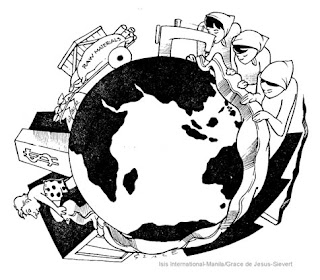Women and globalization
Both positive and negative effects of globalization have had a significant impact on the lives of women all over the globe. One the one hand, globalization has created new chances for women to engage in the global economy, gain access to cutting-edge tools and knowledge, and make connections with other women all over the world. The exploitation of women's labor, the dismantling of conventional gender roles and norms, and the escalation of gender inequality are all consequences of globalization, on the other hand.
The growth of economic prospects has been one of globalization's benefits for women. Women have gained new and significant opportunities to engage in the global economy as trade and investment flows have grown. This has made it possible for many women to reject traditional gender roles and support their families through business ventures and other forms of employment.
Globalization has also made women more vulnerable to new kinds of abuse and exploitation. In global supply chains, women are frequently employed in low-paying, low-skill positions where they may experience unfavorable working conditions, harassment, and abuse. Women who move abroad to work are especially vulnerable since they may not have access to legal safeguards, encounter harassment and discrimination from employers, and others.
The traditional duties and norms relating to gender have changed as a result of globalization. Women have increased economic and educational possibilities, which has given them more power and independence. Traditional ideas about gender and family roles have been questioned as a result, resulting in tensions and conflicts in some cultures.
In many parts of the globe, gender inequality has been made worse by globalization. Women continue to experience significant obstacles in the areas of economic opportunity, health care, and education, and their opinions are frequently ignored in social and political decision-making. Globalization has frequently made these disparities worse because women are frequently left out of the advantages of economic growth and development.
Promoting gender equity and women's empowerment at all societal levels is crucial for tackling these issues. This entails boosting women's leadership and representation in politics and business, expanding access to education and economic possibilities, and addressing gender-based violence and discrimination. In the age of globalization, we can make the world more just and equitable for everyone by striving to advance gender equality.




Comments
Post a Comment